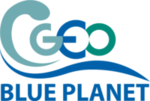IEEE OES Plastics in the Ocean Initiative |
The Marine Debris Virtual Community CenterHans-Peter PlagDep. Ocean and Earth Sciences and Mitigation and Adaptation Research Institute, Old Dominion University Marine debris poses a growing threat to the marine biosphere and, through contamination of marine food sources, also to human health. Many efforts are under way to monitor, manage, and understand the impacts of marine debris, but the many stakeholders are not well connected. While there are efforts to connect the diverse stakeholder better and to ensure that Earth observation based information is available to social actors engaged in tackling the problem of marine debris, there is little progress toward a well connected community collaborating across sectoral boundaries. There is a lack of communication between scientists, governmental organizations (GOs), and non-governmental organizations (NGOs) and the citizens they serve and want to have a dialog with. This lack of communication has led to mistrust and misinformation of the public, and the knowledge of the broad public concerning the threat marine debris poses to the marine biosphere and humanity remains at low levels. The existing social media do not provide sufficient community-focused means to facilitate the building of an open cross-sectoral community that could improve collaboration and communication between all stakeholders in marine debris. It is important that a space is created where people can learn about the many different origins of marine debris and the pathways of debris entering to marine environment. This space should provide opportunities to the people to develop the skills to participate in the dialog about marine debris and ways to tackle this problem. The many web resources related to marine debris maintained by GOs often do not offer means for stakeholders to get in touch with the agencies and to actively participate in addressing the issues. Similarly, many NGOs maintain web resources mainly with the goal to disseminate information created by them in a "push out" mode. Very few resources provide options for information access in "pull" mode. Citizen have very limited opportunities to bring in their point of view as stakeholders. Little resources are available for citizens to improve their capacities to participate in a dialog about marine debris with GOs and NGOs. A Marine Debris Virtual Community Center (MD-VCC) has been established to facilitate the development of a broad community of all stakeholders in marine debris. This MD-VCC is created to address some of the gaps in communication and participation indicated above. The MD-VCC has the goal to enable a dialog about marine debris and means to reduce the influx of marine debris in the ocean between citizens, GOs and NGOs. To achieve this objective the MD-VCC is providing a space where citizen can communicate with agencies and organizations; citizens can learn about all different aspects of marine debris; citizens can learn to participate actively in scientific projects related to marine debris, including the importance of the projects, how to participate, and the end results; scientific professionals can communicate with citizens; GOs and NGOs can exhit their projects, activities, and knowledge; experts can learn what projects and scientific knowledge are of interest to the citizens and engage citizens in the co-creation of knowledge to address the challenge of marine debris. The expected outcomes of the MD-VCC can be grouped in outcomes for the public, the GOs, and the NGOs. For the public, the main outcome is an improved access to knowledge available at GOs and NGOs. Citizens also have opportunities to engage in the development of research agendas and the co-creation of knowledge and co-usage of the knowledge to tackle marine debris challenges in their communities. For NGOs, the MD-VCC provides places to engage with the public and with GOs in efforts to address the marine debris challenges. NGOs also have a place to make their voice heard in the deliberations and to contribute their knowledge. For GOs, the MD-VCC also provides a place to engage with the public in an informal way. GOs have a space to communicate with the public in a two-way dialog. With this, GOs are better linked to the public and have informal means to get feedback from the public. Type of contribution: Presentation. |
This Initiative is sponsored by:
 |
 |
